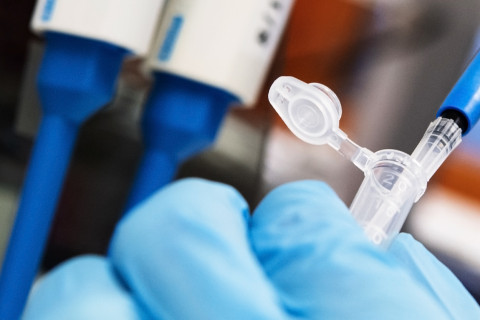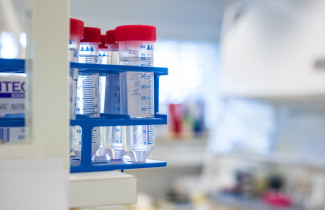The doctoral thesis of Emmi-Leena Ihantola, MSc, provides new insights into T-cell dysfunction and autoantigen recognition in type 1 diabetes.
Type 1 diabetes (T1D) is a T-cell-mediated chronic autoimmune disease, which is characterized by the destruction or dysfunction of insulin-producing β-cells in the pancreas. Patients with T1D are dependent on exogenous insulin treatment which secures the insulin levels of patients with established disease. Both genetic and environmental factors contribute to the pathogenesis of the disease but the exact pathogenetic mechanisms are currently unknown. In the pre-diabetic stage of the disease, which can occur even several years before the clinical disease, autoantibodies against β-cell autoantigens can be detected in the blood and this autoantibody-positivity (AAb+) is the only currently established biomarker for disease risk. However, both CD4+ helper and CD8+ cytotoxic T cells have a crucial role in the destruction of β-cells. The thesis aimed to study the effector T-cell (Teff) dysfunction in T1D. In addition, new targets (T-cell epitopes) for autoreactive T cells were determined.
Regulatory T cells (Tregs) suppress autoimmune responses against self-antigens. Therefore, dysregulation of Treg function has been implicated in the development of human autoimmune diseases, such as T1D. Here, the mechanism of pathogenic Teff cell resistance to Treg-mediated suppression was studied. Activation of STAT3 through IL-6 has been previously shown to have a role in mediating Teff resistance to Treg suppression. Therefore, the researchers also investigated the surface expression of IL-6R as well as IL-6- and TCR-mediated phosphorylation of STAT3 in T cells. It was observed that Teffs from some patients with T1D are resistant to Treg-mediated suppression. However, the phenomenon was not observed in AAb+ children. Furthermore, Teff resistance to Treg suppression was related to STAT3 activation since the inhibition of the STAT3 signaling pathway restored the suppression to the same level as observed in healthy individuals. No changes were detected in IL-6R expression or IL-6–mediated STAT3 activation in T cells from T1D patients or AAb+ children. Interestingly, faster STAT3 activation after T-cell receptor stimulation was detected in T cells from patients with T1D. This rapid STAT3 activation was not directly associated with the capacity of T cells to produce IL-6.
Autoreactive CD4+ T cells, which have escaped from the negative selection in the thymus, recognize β-cell autoantigens and mediate the autoimmune reactions in T1D; the identification of the specific epitopes recognized by these autoreactive T cells is crucial for understanding the pathogenesis of the disease. There are several studies demonstrating that proinsulin is likely the most important autoantigen in disease development. However, proinsulin epitopes recognized by human CD4+ T cells have not been comprehensively characterized. The researchers used a dye dilution-based T-cell method to isolate and characterize 24 unique proinsulin-specific CD4+ T-cell clones from peripheral blood of individuals carrying the high-risk DR3-DQ2 and/or DR4-DQ8 HLA class II haplotypes. The generated proinsulin-specific T-cell clones recognized both previously identified as well as novel epitopes that are presented by the HLA class II molecules associated with T1D. Interestingly, CDR3 sequences matching the TCR sequences of the proinsulin-specific T-cell clones were more frequent in pancreatic lymph node samples when compared to spleen samples.
In conclusion, this thesis provides new insights which will help in future T1D research. Blocking STAT3 activation could be a potential target for immunotherapy since Teff resistance to Treg suppression is a feature of disease progression. Moreover, a better understanding of the autoantigen epitopes is necessary for the development of antigen-specific peptide immunotherapy targeting autoreactive T cells and for improving methods for T-cell monitoring of autoreactive T cells during immunotherapy trials.
The doctoral thesis of Emmi-Leena Ihantola, Master of Science, entitled T-cell dysfunction and autoantigen recognition in type 1 diabetes, will be examined at the Faculty of Health Sciences. The Opponent in the public examination will be Docent Arno Hänninen of the University of Turku, and the Custos will be Professor Tuure Kinnunen of the University of Eastern Finland. The public examination will be held in Finnish online on 19 February 2020.


